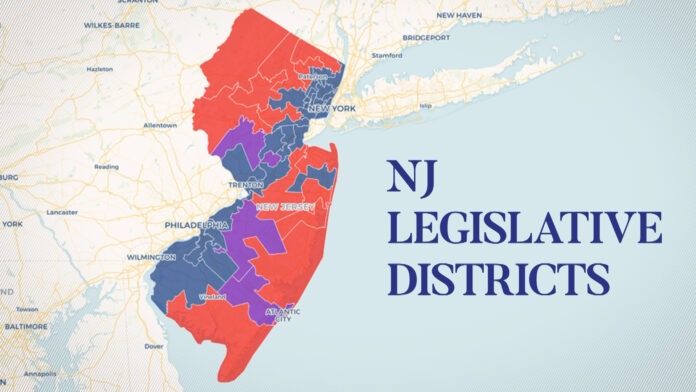As New Jersey heads into the final stretch of its 2025 political calendar, attention is squarely on the gubernatorial election and key local contests shaping the state’s future. Voter engagement, campaign controversies, and legislative developments are dominating headlines, with residents closely following the dynamics of competitive races, policy debates, and judicial proceedings that could impact the Garden State for years to come.
Gubernatorial Race Heats Up
The 2025 race for governor is proving to be highly competitive, with Republican Jack Ciattarelli and Democratic candidate Mikie Sherrill vying for voter support across the state. Recent campaign developments have generated controversy and media attention. A video released this past weekend featuring a Muslim outreach adviser for Ciattarelli drew criticism after remarks were interpreted as supporting a ban on gay marriage and containing antisemitic undertones. The incident has sparked scrutiny from Democrats and national observers.
Sherrill’s campaign has also faced criticism. Comments from a former staffer, who left the campaign in July, about Ciattarelli have surfaced, prompting political counterattacks and highlighting the heightened tension as election day approaches. Despite the controversies, voter guides and information are becoming more widely available. WHYY recently published a comprehensive guide for older voters detailing early voting, mail-in ballots, and polling procedures to ensure citizens are prepared to cast their ballots.
Polls indicate a razor-thin margin between Sherrill and Ciattarelli, with a Rutgers University survey showing Sherrill holding a narrow lead among undecided voters. Democratic lawmakers have rallied behind Sherrill, appearing at campaign events statewide, while Sherrill herself has proposed new policy measures, including a ban on ICE agents wearing masks during raids—a measure she has repeatedly criticized in the past.
Atlantic City Mayoral Contest in Spotlight
Local elections are also drawing attention, particularly the Atlantic City mayoral race. Incumbent Democrat Marty Small Sr. faces a strong challenge from Republican businessman Naeem Khan. The campaign has centered on public safety, with both candidates citing recent crime statistics from the New Jersey State Police to support their policy approaches. Analysts suggest that voter turnout will be a decisive factor, as participation in non-presidential election years often lags behind national averages.
Legislative and Policy Developments
Governor Phil Murphy recently issued a conditional veto on legislation requiring data centers to report energy and water usage, asking lawmakers to include provisions that balance regulatory oversight with the potential impact on ratepayers. The move underscores ongoing discussions about energy policy, sustainability, and the intersection of business and public interest.
In addition, Republican state senators have proposed legislation to suspend sales tax and the Societal Benefits Charge on energy bills, citing recent price increases that have affected households across New Jersey. Senator Carmen Amato emphasized that the bill seeks to provide relief to families while encouraging energy accountability and fairness in utility regulation.
Election integrity has also surfaced as a major talking point. New Jersey Republicans have requested federal election monitors in Hudson County, citing historical concerns over voting irregularities and emphasizing the need for transparency in the upcoming elections. Political commentators, including Matt Rooney, have highlighted ongoing debates over ballot security and the importance of maintaining voter confidence in battleground counties such as Passaic.
Congresswoman McIver Legal Proceedings
Federal court proceedings involving Congresswoman LaMonica McIver (NJ-10) have added another layer of political tension. McIver faces assault charges stemming from a May incident during the arrest of Newark Mayor Ras Baraka, and a federal judge recently heard arguments on motions to dismiss the case.
According to Hanna Rumsey, a spokesperson for McIver, the oral arguments focused on claims of selective enforcement, vindictive prosecution, and legislative immunity. The judge has yet to issue a ruling but ordered the U.S. Attorney’s office to remove certain public statements that negatively described McIver and to provide additional discovery, including video footage and internal policies relevant to the case. Rumsey emphasized that McIver maintains her innocence and views the prosecution as an effort to intimidate her for holding the administration accountable.
Election Security and Voter Concerns
Ballot security continues to be a major concern in New Jersey politics. In recent interviews, political analysts have cited incidents in Passaic County as emblematic of the need for clear procedures and oversight, particularly as the state enters a high-stakes election season. With a combination of tight races, policy debates, and local elections shaping voter sentiment, New Jersey’s political climate is entering one of its most consequential periods in recent years.
Residents seeking updates and in-depth coverage of the state’s political landscape can follow ongoing reporting and analysis at Explore New Jersey Politics, which provides insight into elections, legislation, and policy developments that impact the Garden State.












